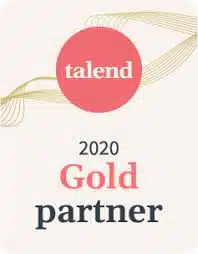In the face of growing uncertainty regarding business activities throughout the world, ERP definitely remains the cornerstone of organizations’ performance and even their operational excellence. In addition, the acceleration in digital innovations that we are currently seeing means the demand for expert ERP consultants keeps expanding. Smart objects (IoT), big data, AI, machine learning and even blockchain are all contributing to the endless diversification in applications and services used within information systems, and consequently the amount of data to be managed. Integrating these new technologies and all these data with ERP now requires the involvement of ERP consultants, a role that has now evolved beyond mere technicians or functional advisors. “ERP expert” is consequently the term more often applied, especially as the role has broadened to cover the ability to advise the business generally, thanks to the overview gained of its business processes and data flows. In so doing, they help to prioritize IT correctly within a transformation project as a whole. How has this ERP expert aspect developed, and what are the key skills sets now needed?
Back to basics: what were the skills ERP consultants originally possessed?
While the abbreviation ERP, for Enterprise Resource Planning, first really appeared in the 1990s with the idea of cross-functional management of processes and data, the implementation of ERP projects truly took off from the 2000s with the widespread adoption of the internet in workplace environments and the growing maturity of the ERP solutions available on the market. Perhaps you recall how many ERP systems mentioned “e-business” at the time… In those days, the ERP consultant had to analyze and understand the customer’s needs and convert them into what were essentially modular software applications using a single database. The technologies of the time meant that ERP systems were still very technical. Every SAP functional consultant had seen developers’ comments in the code saying “eine große Maschine!” (for “needs a big machine”) to warn that the processing was very resource-hungry. ERP expertise back then therefore entailed the ability to fully understand the customer’s requirements and, above all, manage ERP configuration as effectively as possible without deviating too much from the standard functionalities. Indeed, a consultant’s proficiency in configuration options allowed the right choices to be made without succumbing to the pitfalls of over-complicated bespoke development, which transformed some organizations’ ERP systems into Rube Goldberg machines, incapable of ever evolving to keep pace with the business’ growth. The initial promise of the system was broken, since as soon as new requirements emerged, reworking such bespoke development to handle them was inevitable. To remedy this, the ERP expert had to have both technical and functional skills, and be an excellent listener, and know how to pass knowledge on. So in fact the role was already very varied, ranging from ERP system configuration to acceptance testing, and training and user support during the start-up phase. So many tasks piled onto one ERP consultant that an impressive set of capabilities was required: independence, curiosity, thoroughness, ability to summarize, writing proficiency and excellent interpersonal skills… Quite a tool kit.
Understanding functional requirements has always been crucial in an ERP expert
This functional dimension and the resulting ERP system configuration have gradually expanded to include the contribution made by other applications to the information system. The promise of ERP has always been to improve organization through the centralization of all data in a single database, ensuring greater data integrity in comparison to scattered files and solutions, with better process management and therefore seamless real-time coordination between staff from different departments. The role of the ERP expert has always been to advise businesses, from the choice of the right solution, to the best way to configure processes on the basis of the challenges faced and user requirements. This is the reason we started looking for ERP consultants who were previously business managers (in accounting, sales, logistics, etc.) who had been involved in their company’s ERP implementation and had experienced difficulties with configuration, data take-on, user support during a changeover, etc. With in-depth knowledge of a business sector or industry, consultants are also involved more in pre-sales to help the firm select the most suitable ERP solution and contribute to improving the appropriateness of the ERP system specification. This dual expertise has made recruitment more complicated. ERP consultants meeting both technical and functional criteria have become impossible to find on the labor market, leading to a distinction between two types of consultants, the functional and the technical. The former take charge of analysis and the functional specs, the latter are tasked with technical configuration and any bespoke development, but the effect is also to make project implementation methods more complicated too. Shifting the emphasis in the recruitment of ERP consultants towards the functional takes it away from the technical and application aspects. This tends to favor keeping the standard functionalities of the ERP system with no effort to fine-tune the configuration, sometimes to the detriment of taking into account those very factors that first made the business competitive…
What is the role of the modern ERP expert consultant, and is it likely to change further?
It is not now possible to distinguish between the functional and technical skills of a number of consultants. With the trend for publishers to move to cloud-based services and the technological innovations mentioned previously, the technical dimension has again become a more influential area in the ERP expert’s skills set. For example, file transfers are no longer one of the standard ways for sharing data in today’s cloud, whereas a consultant does need to know what a Web service and a REST API are. Customers cannot be properly advised without understanding exactly what possibilities these new technologies offer. Despite the functional depth of some ERP systems such as SAP S/4HANA and Microsoft Dynamics 365, it is sometimes essential to consider developing additional micro-services or mobile apps to improve data sharing and enhance processes. Microsoft has further perfectly illustrated this by shifting ERP development towards an open platform enabling business requirements to be rapidly met by means of tools such as Power Apps. To fully exploit these new possibilities and gain all the benefits, businesses definitely need to use “hybrid” ERP expertise, i.e. both technical and functional. However, the race for technological innovation exacerbates the shortage of ERP experts, as such functional and technical skills remain scarce. Eric Robinson (Global VP & General Manager, SAP Services) reiterated this aspect in an opinion piece published by Gartner in July 2018: “Replacing ERP skills isn’t as simple as it was 10 years ago, because the pool of external candidates with ERP product expertise is shrinking. Growing demand to staff digital projects and the need for digital talent within business units are worsening the skills shortage by creating new competition for the best IT resources.” ERP publishers understand the issue and are putting the pressure on integrators with their training and certification programs.
Is the training sector adjusting to this need to train multi-skilled ERP experts?
In response to the shortage of ERP experts on the market and the resulting wage inflation, with some consultants’ salaries exceeding those of sales staff, the training sector is adapting. Initially recruited after 4 or 5 years of university study, recruiters are now giving preference to experts from hybrid pathways involving technical education and business school. Nonetheless, the diversity of skills needed is also pushing some software publishers to set up their own training centers as an add-on to conventional higher education degrees. This goes above and beyond the usual sphere of software publishers and levels of certification. For example, Microsoft, which had already taken great strides in certification training in its ERP systems, has set up an extra network of schools offering small business training in artificial intelligence, sometimes in partnership with providers such as Simplon. This training process is also followed by integrators where the list of courses is designed to cover all the bases in skills development plans. ERP skills centers are not designed solely to deliver training services, but also to ensure they expand the areas of consultants’ expertise. Not to be outdone, SAP has a comprehensive offering available to assist with training by supporting certification for experts working with its ERP systems.
Can the problems recruiting ERP experts be overcome?
At TVH, our experience in successful ERP deployments and our approach of staying focused on improving our customers’ competitiveness through their ERP, led us very early on to develop the skills and know-how of our experts. The aim is to support our customers in making the right choices, as regards both benchmarking ERP systems and optimization and continuous development with application support and maintenance services If you are looking for experts in SAP or Microsoft ERP systems, contact us.
The TVH Consulting Group
TVH Consulting brings together more than 170 Microsoft, SAP ERP and BI solutions experts, committed to 100% project success.



These contents may interest you:
- Reconciling ERP specifications with the need for agility
- SAP S/4HANA migration: why and how?
- Agri-food ERP systems: a comprehensive review to ensure the right choice
- ERP projects: advice on achieving success, from preliminaries to implementation
- How to make the right choice between Microsoft and SAP ERP systems
Pour en savoir plus sur les contenus et outils de Business Intelligence, visitez le site :
Contact us
22, rue Guynemer – B.P. 112
78 601 Maisons-Laffitte Cedex
- +33 (0)1 34 93 17 27
- +33 (0)1 34 93 49 49
- infos@tvhconsulting.com
Our agencies
Les sociétés du groupe TVH Consulting
![]()
![]()
![]()
![]()

